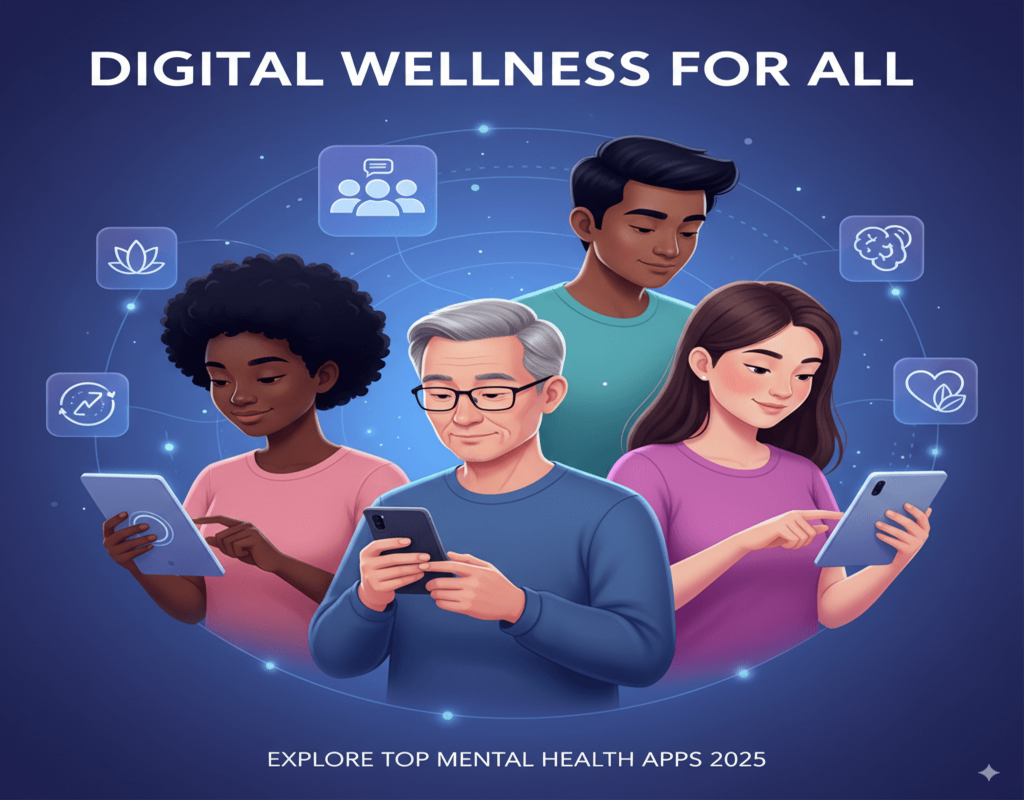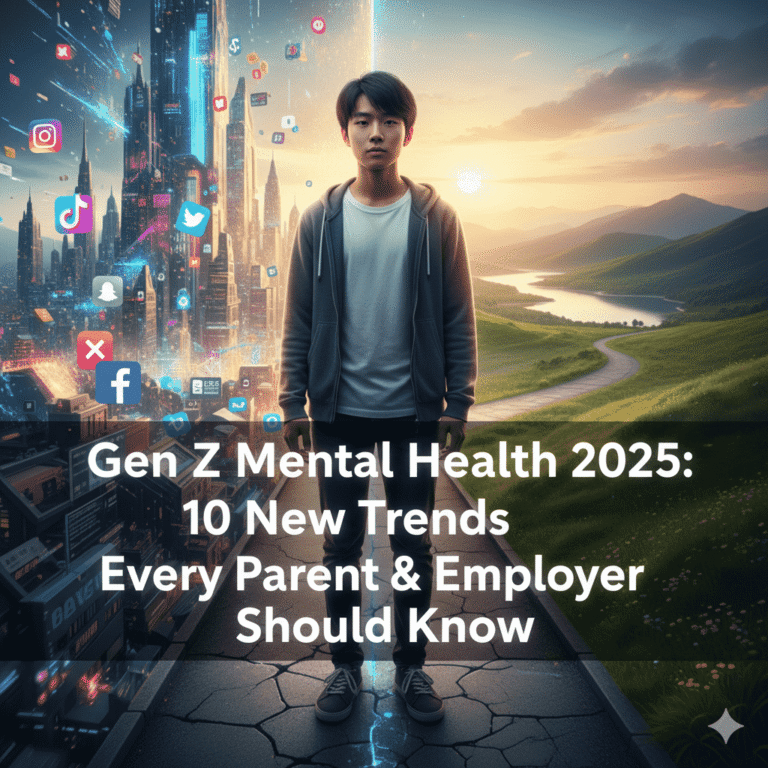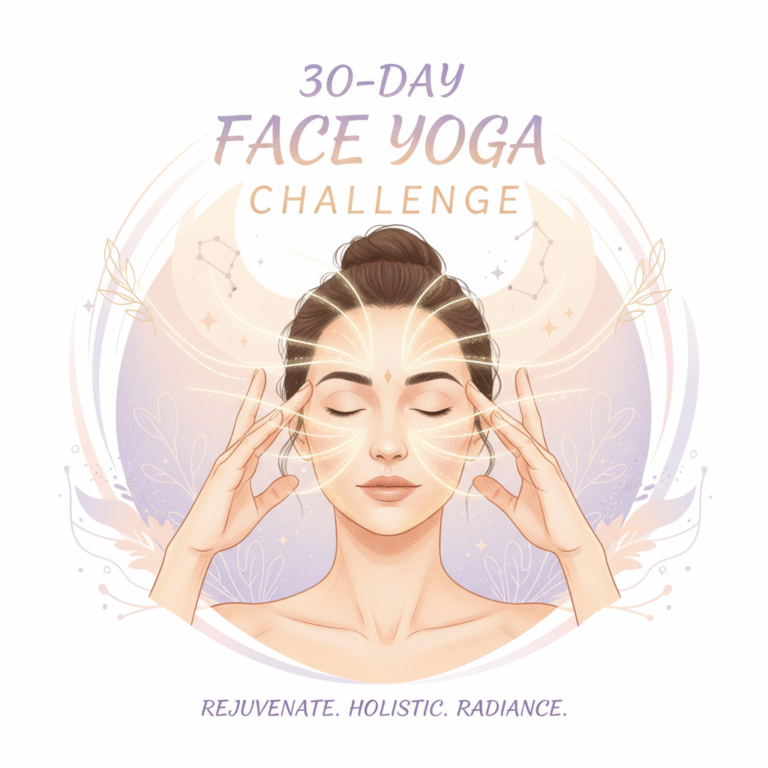
In 2025, mental health awareness has reached new heights. More people are recognizing that mental wellness is just as important as physical health. With this rising demand, there are dozens of mobile tools clamoring for attention—and it’s hard to know which one is actually helpful. In this article, we tested and compared the best mental health apps 2025 to help you figure out which app really works. Whether you’re battling anxiety, seeking mindfulness, or wanting therapy online, this list will guide you.
What Features Matter Most in a Mental Health App
Before diving into the apps, let’s look at what makes an app truly effective in 2025. Research and user surveys show that people are not just looking for pretty designs—they want real results. According to recent studies:
- Mood tracking & journaling help users note patterns in their emotions and recognize triggers. Attract Group+2BioMed Central+2
- Mindfulness, meditation, and guided relaxation tools are among the most popular categories. BioMed Central+2Verywell Mind+2
- Features like AI chatbots, self-assessment tools, and CBT tools are becoming standard as they can deliver support anytime, without needing an appointment. Attract Group+2Crown Counseling+2
- Data security & privacy is non-negotiable—users want apps that protect their personal information. Trust is a big barrier otherwise. BioMed Central+1
- Access & usability features like multi-language support, offline modes, reminders, integration with wearables, etc. help maintain engagement. Miquido+2Attract Group+2

How We Tested & Compared
We selected dozens of popular apps globally, focusing on those with high user ratings, recent updates, and presence on both Android & iOS. We evaluated them based on:
- Feature set (tracking, therapy, AI, mindfulness etc.)
- Cost (free versions vs paid subscriptions)
- Usability (UI/UX, loading speed, ease of use)
- Privacy policy & security
- Unique features / differentiators
Top 12 Mental Health Apps in 2025 (Detailed Reviews in This Section)
Below are brief summaries—with pros & cons, pricing, best use-case for each. (Full versions will include prices in USD/local currencies, free vs paid features, etc.)
- Headspace
- What it offers: Guided meditation, sleep stories, mindfulness exercises.
- Pros: Very polished UI, strong content library, widely used globally.
- Cons: Premium subscription needed for many features; free version limited.
- Calm
- What it offers: Relaxation and sleep aids, nature sounds, breathing exercises.
- Pros: Excellent for sleep & relaxation; huge user base.
- Cons: Expensive premium; less emphasis on therapy tools.
- Wysa
- What it offers: AI chat / penguin companion + CBT tools.
- Pros: Great hybrid of AI & self-help; flexible use.
- Cons: Sometimes AI feels limited compared to human therapist; subscription needed for advanced.
- BetterHelp
- What it offers: Online therapy with real licensed therapists.
- Pros: Strong credibility; privacy; you can change therapists easily. Verywell Mind
- Cons: Cost higher; messaging features sometimes less effective than video or audio.

Comparison Table
| App | Free / Paid | Platform (iOS / Android) | Best For | Key Features |
|---|---|---|---|---|
| Headspace | Freemium + subscription | iOS & Android | Beginners, Meditation, Sleep | Guided meditation, sleep stories, offline mode |
| Wysa | Free + premium | iOS & Android | Anxiety / CBT self-help | AI chatbot, self-assessments, journaling |
| BetterHelp | Subscription | iOS & Android / Web | Professional therapy online | Licensed therapists, messaging/video, privacy |
How to Choose the Right App for You
- Decide whether you need professional therapy or just tools/support (like meditation or journaling).
- Check pricing: Is the free version enough? If not, can you afford the subscription?
- Always read the privacy policy. Does the app share data? Are there in-app purchases?
- Look for apps that offer a trial period so you can test what fits.
- Features like reminders, offline mode, multi-language support can help if you travel or have unstable internet.

Conclusion
There’s no one-size-fits-all. But if you want a balanced, well-rounded app, check out those in this list with strong reviews, good privacy, and enough features that match your personal needs. Whether you go for mindfulness, AI chat support, or online therapy, the important thing is consistency. Use the tools, track progress, adjust as needed—and your mental wellness in 2025 can improve significantly.
Are mental health apps effective for anxiety and depression?
Yes, many mental health apps for anxiety and depression provide guided therapy sessions, breathing techniques, and CBT-based practices. While they can’t replace professional therapy, they are helpful for self-care and emotional support.
Which free mental health apps really work?
Some of the best free mental health apps 2025 are MoodMission, Sanvello (with limited free features), and MindDoc. They offer mood tracking, journaling, and meditation exercises without subscription costs.
What’s the difference between free vs paid mental health apps?
Free mental health apps usually provide limited features like journaling or meditation basics, while paid therapy apps (like BetterHelp or Talkspace) give access to licensed therapists, personalized plans, and 24/7 support.
Are there mental health apps for students?
Yes, several mental health apps for students focus on stress management, exam anxiety, and time management. Apps like Headspace and Calm are highly recommended for students worldwide.
How do I choose the right mental health app for me?
Choosing the right app depends on your needs—whether it’s therapy apps online, meditation, journaling, or CBT exercises. Always check reviews, features, and privacy policies before downloading.
Can mental health apps replace real therapy?
No. While mental health apps are useful for daily support and coping strategies, they cannot replace professional therapy for serious mental health conditions. They work best as complementary tools.


